You can become a member of BBE either as an organisation or as an individual
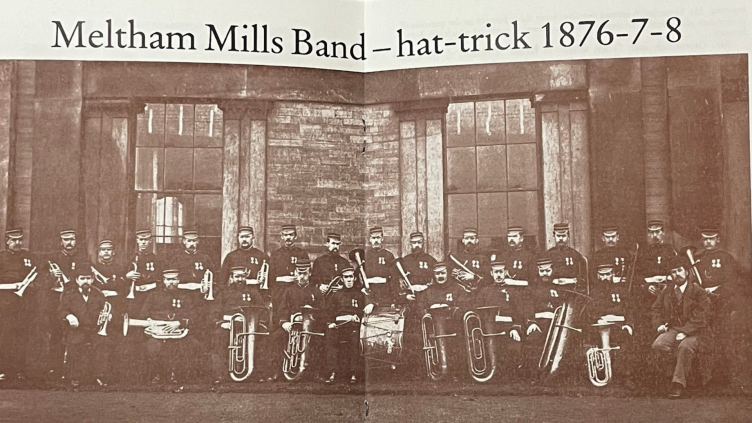
Welcome to a new instalment in our series dedicated to exploring the fascinating contents of the Brass Bands Archive. I'm Alexander Parker, Brass Bands England’s Membership Development Manager, and I had the privilege of managing this remarkable archive from 2018 to 2024. Today, we're diving into a particularly captivating donation from the Meltham and Meltham Mills Brass Band, a collection that takes us back to the origins of the Brass Bands we know today.
A Storied Past: The Melton and Melton Mills Brass Band
The Meltham and Meltham Mills Brass Band, originally known simply as Meltham Mills, is one of the oldest brass bands in the World. Formed in 1843 as a reed band, and restructured into a brass band by 1846. The Band has a rich history interwoven with the community and industry of Meltham Mills. Supported by Jonas Brook and Bros., The Mill's owners, the band's emblem still features the iconic ram's head, a nod to its origins.
Despite limited success in early competitions, the band's fortunes changed in 1871 with the appointment of John Gladney as Musical Director. Under his leadership, the Band entered a golden era winning numerous contests and making a lasting mark on brass band history.
The British Open: A Pinnacle of Achievement
The Meltham and Meltham Mills Brass Band's early history is closely tied to the prestigious British Open Brass Band contest, the world's oldest music competition which began in 1853. The Band's first major victory came in 1873, and they went on to achieve the first-ever "Treble" by winning three consecutive years from 1876 to 1878. This remarkable feat has only been matched by six bands in 170 years of competition.
After winning the Treble, the Band was not allowed to take part in the 1879 or 1880 contest. A rule, only recently removed, that after winning 3 times a band must not compete the following year. After winning in 1887, the break rule encouraged several players to move and play with Black Dyke Mills band who won between 1879-81. Several of these players were 6 times winners, Edward Stead being one (a medal celebrating this is still owned by the stead family). Since then Black Dyke continued to worldwide fame, and Meltham have not again reached the same heights.
John Gladney, Meltham Mills legendary conductor, played a pivotal role in the Meltham victories. He remains the only conductor to win a British Open Treble with two different bands, and winning a total of 19 times. This secured his place as one of the most influential figures in brass band history.
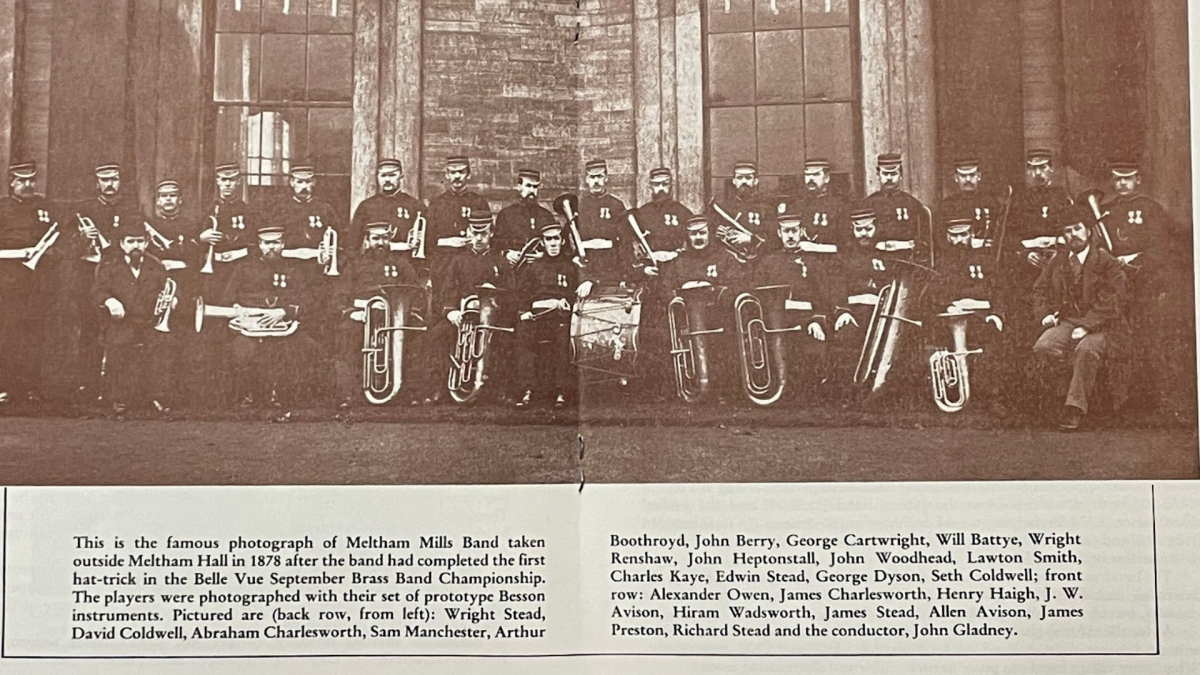
John Gladney was not the only legendary figure of brass band history in the band at this time, the Principal cornet player in this period was a man who would eventually be known in his own right as a towering figure in brass bands, Alexander Owen. After playing with Meltham Mills Brass Band, and learning from John Gladneys experience he conducted Black Dyke Band between 1880-88. He is most famous as the conductor of Besses o' Th' Barn band, taking the band on two world tours in 1906 and 1907, then again in 1909 to 1911. Alex named his son Gladney after his mentor, and Meltham Mills Band's treble winning conductor.
A Legacy of Innovation: Standardising the Modern Brass Band
In 1874, the Meltham and Meltham Mills Brass Band won the first brass band contest held at Pomona Palace Gardens in Manchester, a victory that helped standardise the modern brass band formation. The Band's set of Besson prototype instruments, including the first-ever Bb Basses, solidified their status as the first recognizable all-brass band with modern instrumentation.
The Donation: Unearthing Musical Treasures
In October 2022, the Meltham and Meltham Mills band made a significant donation to the Brass Bands Archive. During routine maintenance, a hidden collection of music from the band's most successful period in the late 19th and early 20th centuries was discovered. This collection, which includes many original handwritten scores, provides a unique glimpse into the band's storied past.
Five key pieces from this donation stand out:
1. Dinorah by Giacomo Meyerbeer, arranged by Charles Godfrey: This was the piece that secured the band's first British Open win in 1873 under John Gladney's direction. [BBA/B/ME/M/16]
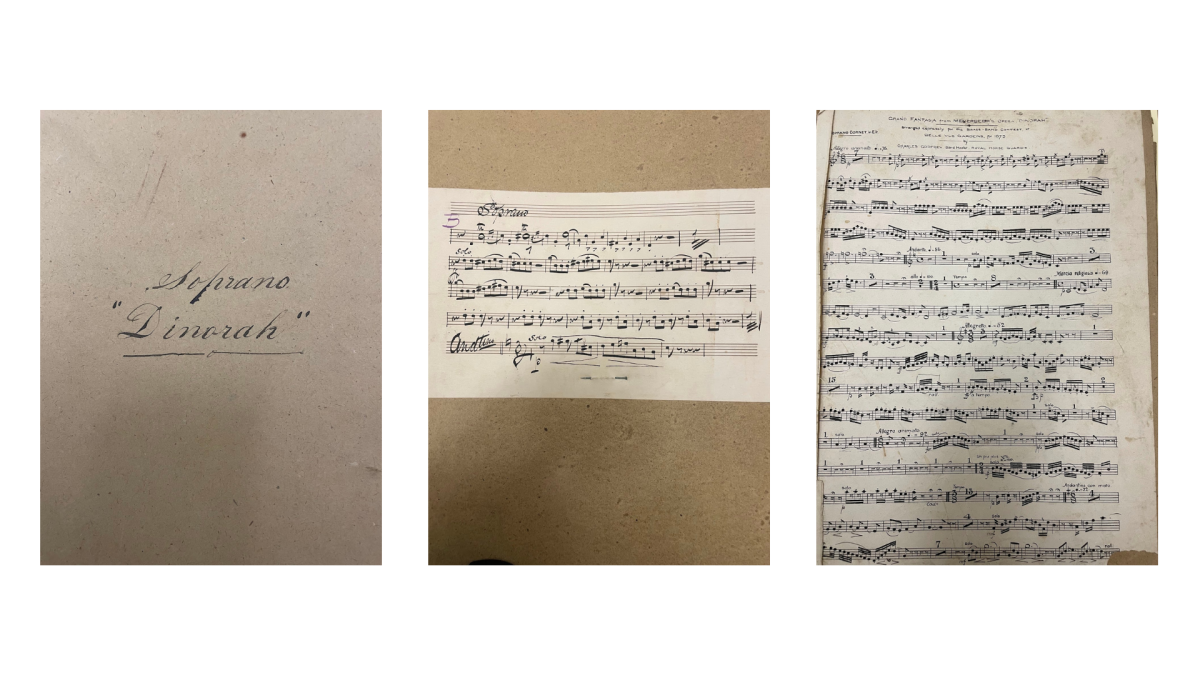 >
>
2. Aida by Verdi, arranged by Charles Godfrey: This piece was part of the band's historic first Treble win in 1876, featuring markings from players including the legendary Alexander Owen. [BBA/B/ME/M/1]
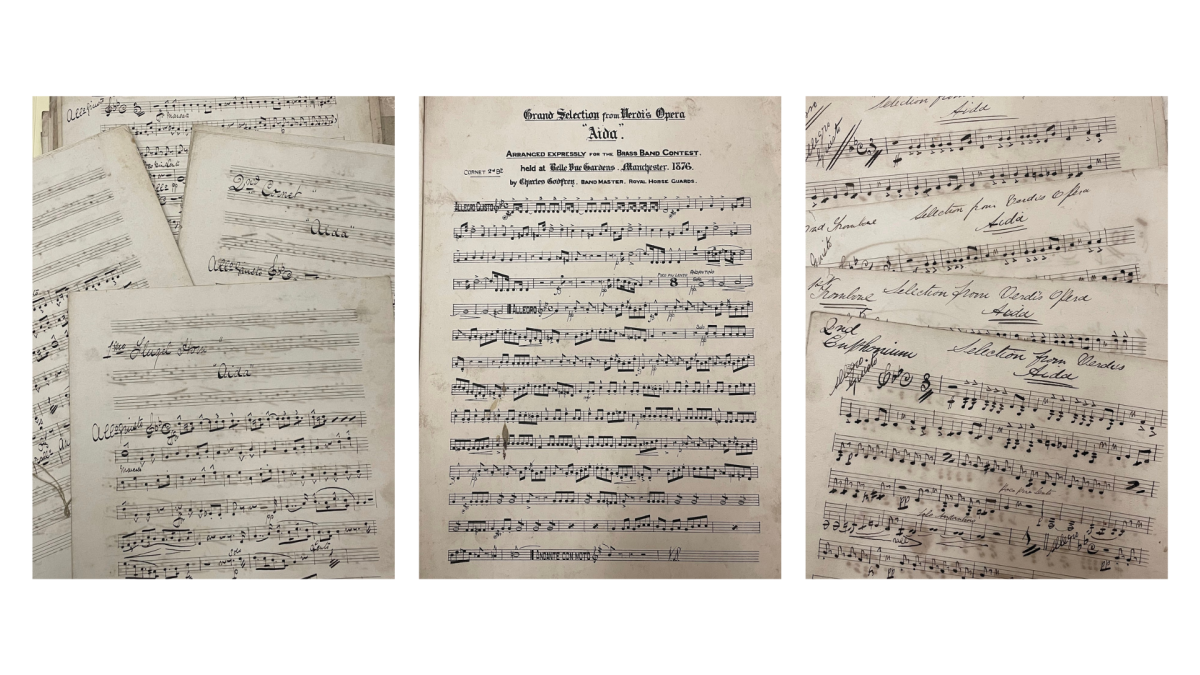
3. Jessonda by Spohr, arranged by Charles Godfrey: This piece contributed to the band's second Treble victory in 1877, with player annotations that provide a window into their preparation and performance. [BBA/B/ME/M/13]
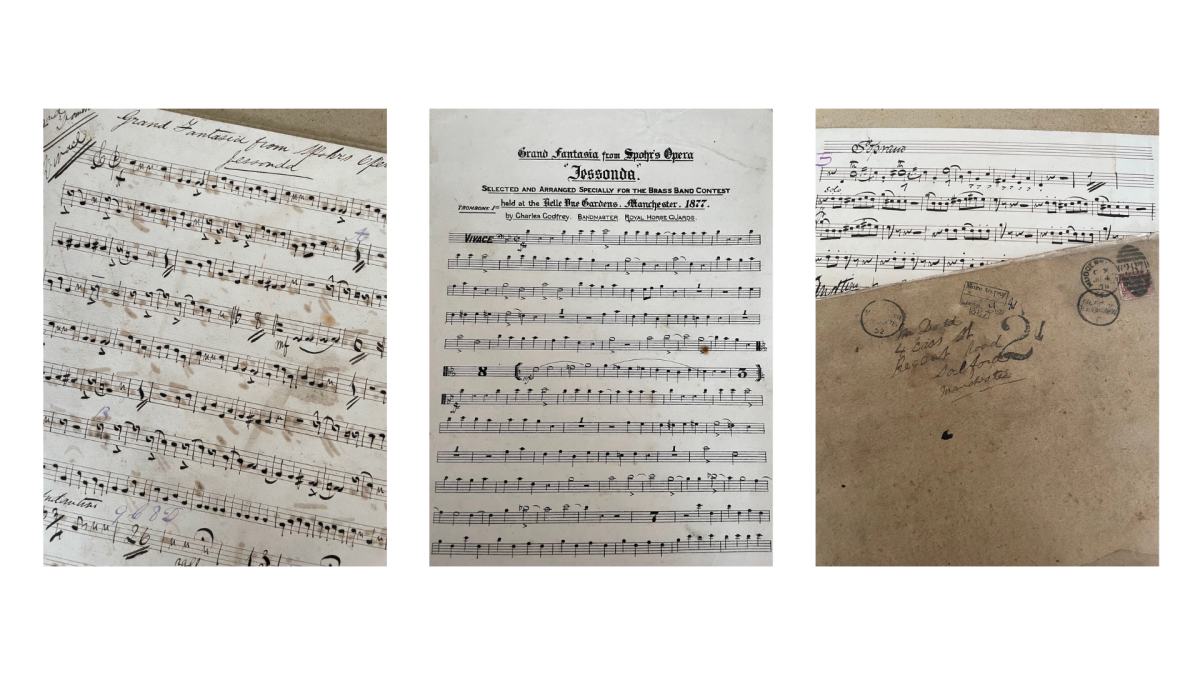
4. Gemma di Vergy by Gaetano Donizetti composer, and arranger Richard Smith. This score was used by the band when they won the Batley contest in 1874, and is signed by John Gladney. His markings in the score might reveal some of the secrets of his success. [BBA/B/ME/M/2]
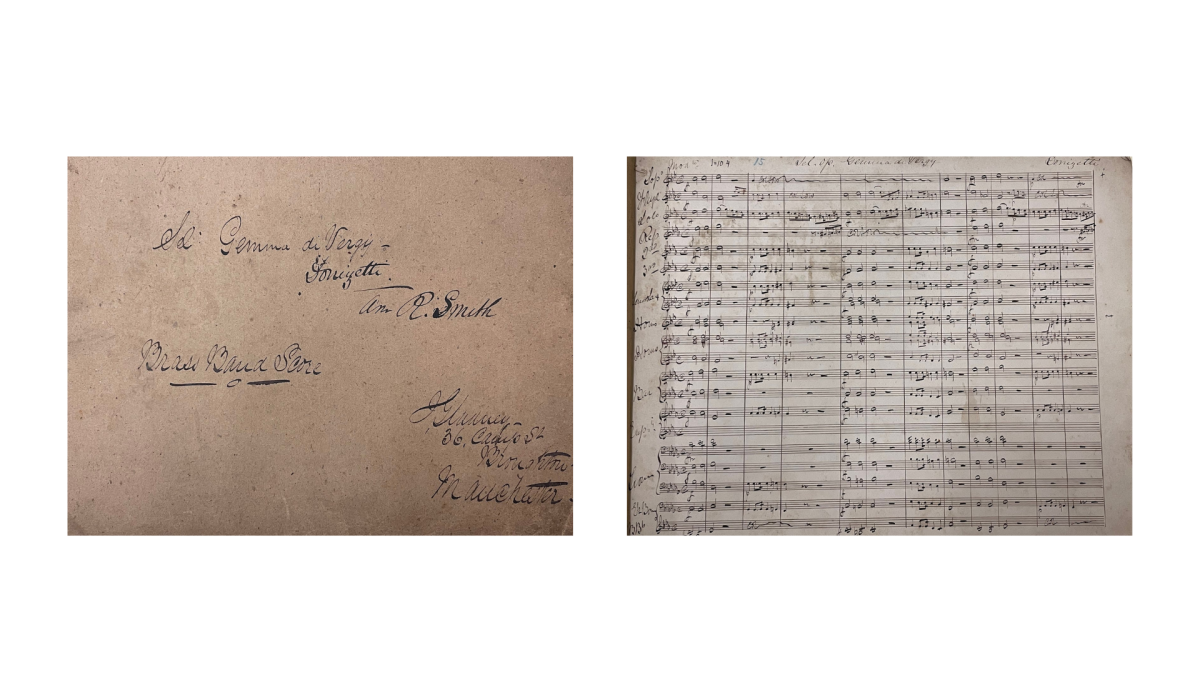
5. Cinq Mars, by Charles Gounod composer, and arranger Charles Godfrey
Whilst on this occasion at the 1881 British Open the band only managed to come second this complete set of parts and conductor's short score offers a full insight into the way John Gladney marked a score and his players marked their parts in preparing a performance. The winning band that day was the Black Dyke Mills band completing their own trebel. The Black Dyke band included several players who had played with Meltham and Meltham Mills during their own previous treble including Mr. Edwin Stead, who had played in all 6 consecutive winning performances, a record that it is believed stands to this day. [BBA/B/ME/M/5]
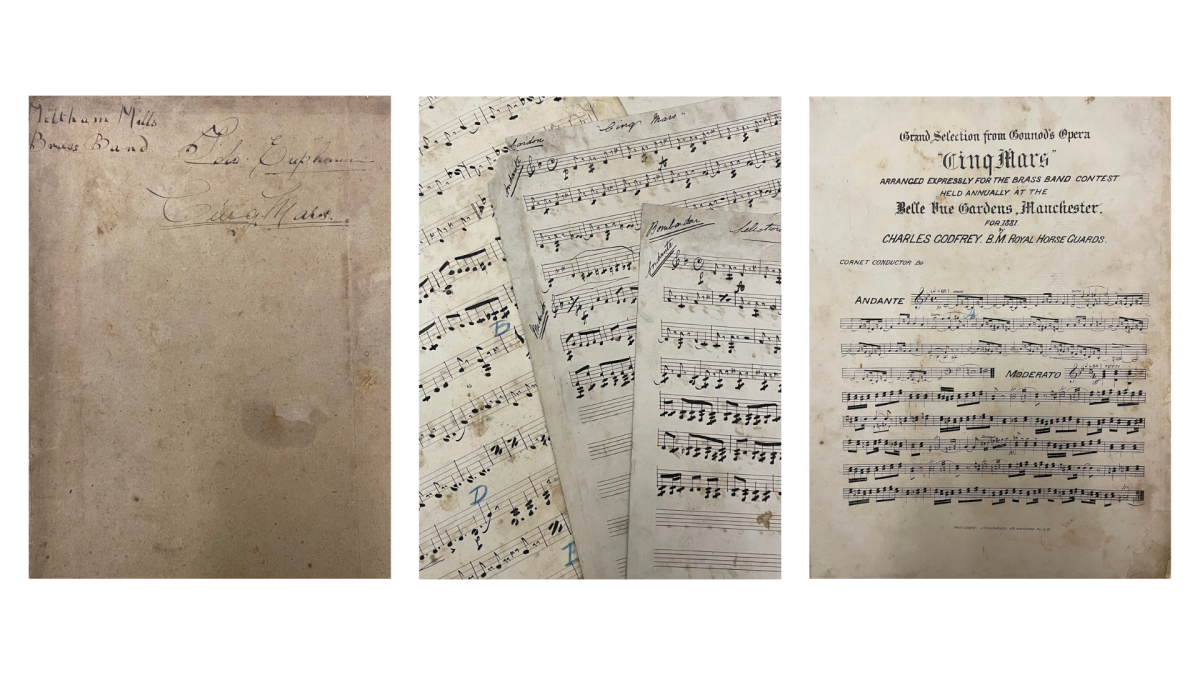
Sadly, the music for the third Treble win was found in poor condition, and could not be preserved. The twenty-two pieces that were saved offer further insights into the band's techniques and successes under Gladney's leadership.
A Living Heritage
The Meltham and Meltham Mills Brass Band continues to serve the community. Currently competing in the first section, and maintaining its legacy as a championship section band as recently as 2013. The treasures found in their donation have now been catalogued and are now part of the Brass Bands Archive Collection at Heritage Quay in Huddersfield University, available for public viewing and research.
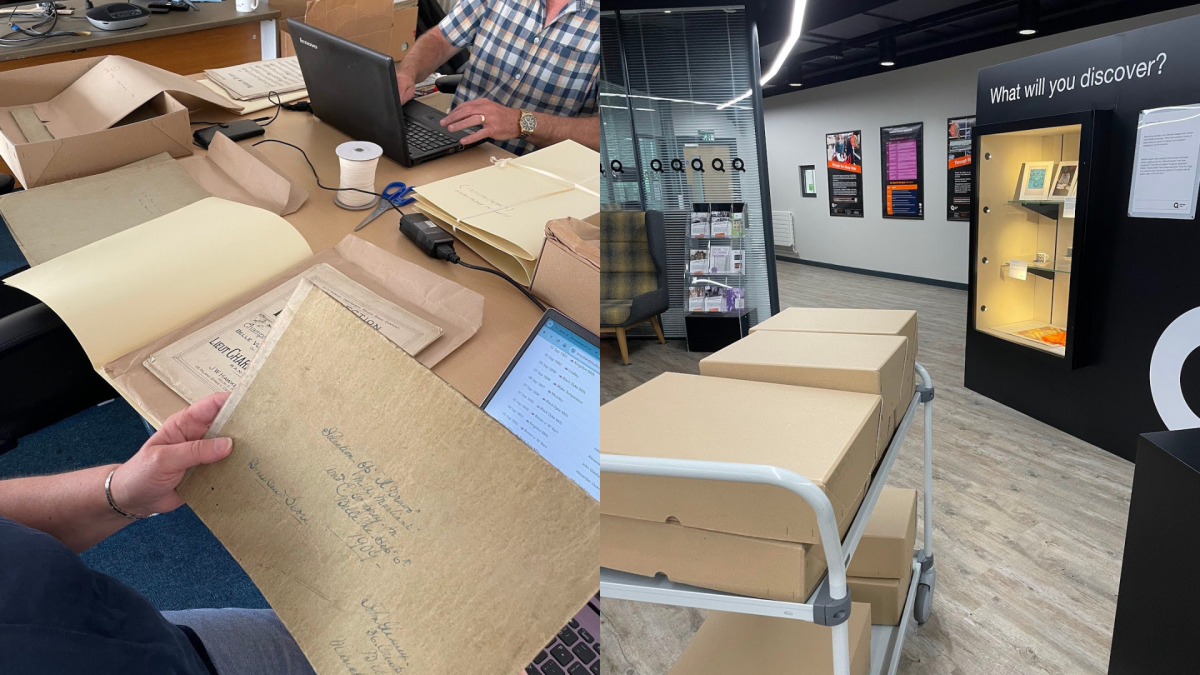
This collection not only preserves the band's illustrious history but also celebrates the enduring spirit of brass band music. Stay tuned for more fascinating discoveries as we continue to explore the rich archives of brass band history.
The Brass Bands Archive collection is held at the Heritage Quay at the University of Huddersfield and anyone can visit and view the Archive. The research room at Heritage Quay is open on Tuesdays and Wednesdays 09.30 – 17.00. To book a visit, take a look at the Heritage Quay website.
Remember to follow us on Instagram @brassbandarchive for all your Brass Band Archive related news and all things brass banding heritage.
If you think you have material you would like to donate, please email: archive@bbe.org.uk.